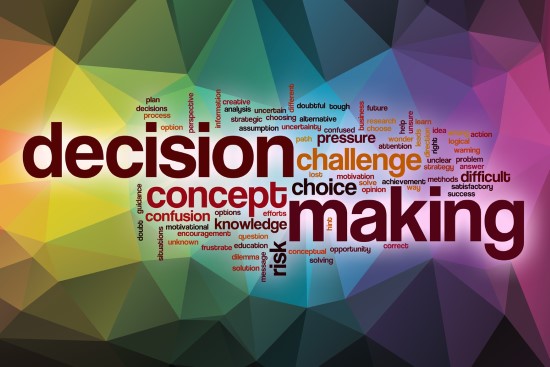What Is Decision-Making, And What Is Its Significance?

Did you know that about 35,000 decisions are made every day, and the majority of these are based on instinct? We are not even aware of more than half of the choices we make during a day, from what we're planning to eat to the clothes we'll wear, and the things we'll do after work. WHO has identified decision-making as one of the top 10 life skills. This article will be focusing on the subject.
What is Decision-Making?
Decision-making is the process of taking into consideration various choices to take the desired action. The person making the decision weighs the pros and cons, analyzes the issue from different angles, seeks advice, does research, evaluates the facts and decides to take a decision that will lead to the desired result. To discover more details about FS D12 Dice, you've to browse 12 sided dice roller site.
Why Build Decision-Making Skills in Children?
In a recent poll we conducted we asked parents what life skills they would wish to teach their children. Some responses we received were - cycling, swimming or tying shoelaces. These are not abilities that are useful in daily life. They are classified as physical or technical, but they're not considered life skills. These skills are essential to live a normal existence.
We must encourage decision-making in our children at an early age.
I'm sure you'll be with me when I say that making decisions is a fundamental part of every day life. It is an essential skill that will allow you to live a joyful and fulfilling life. There's no sure way to decide. I would love to see one! We will make mistakes and falter. We will repeat the same mistakes with their kids. But how do we correct our mistakes and learn from our mistakes? That's the question that is important.
It is essential to allow children the freedom to take their own choices at an early age, due to the following reasons
Children are tomorrow's leaders
The children we raise today will be the future leaders of the future. They will be in charge of society 20 years from today. Taking this long-term view, we as educators and parents must try to impart sound decision-making skills to our children - making them comfortable, kind, and confident.
Building relationships is possible with the process of decision making
As they grow older Children choose their own friends and decide with whom they want to interact. People who are genuinely there to assist and encourage their children make excellent decision-makers. Of course, not all of us are able to predict the an individual's behavior or availability, both in good times and bad. However, awareness and mindfulness can improve one's intuition and help to make good sense.
Be Patient and overcome difficult situations
Based on their prior choices, experienced decision makers are able to have confidence in themselves. This allows them to be patient when faced with difficult or unusual situations.
Helps Children Become Better Decision Makers
Children today have more confidence and possess their own opinions. A child can express his preferences and dislikes as early as six months. They are able to discern clearly what they do and dislike. These are the first steps toward making decisions on their own and establishing their individuality. We, as parents can help our child make informed decisions and respect their choices without prejudice.
This is an insightful perspective offered by Dr. Ikeda. Children should be treated as people by adults. Children who are permitted to be decision-makers earlier on throughout their lives gradually become confident with this ability as they grow older. They might be able to make informed decision-making when they reach the point where they have to decide on a career. They'll be able make informed choices when they step into their careers and assume the roles of teachers, lawyers as well as managers and political leaders.